Federal & State Tax Agencies Responding To COVID-19 With Tax Relief – The Families First Coronavirus Response Act
IRS Coronavirus Tax Relief
The IRS has established a special section focused on steps to help taxpayers, businesses and others affected by the coronavirus and as information becomes available, the IRS will be updating this special page on its website.
President Donald Trump declared the coronavirus pandemic a national emergency. Therefore, under Sec. 7508A, the declaration of an emergency under the Robert T. Stafford Disaster Relief and Emergency Assistance Act, P.L. 100-707, the IRS is allowed to delay certain tax filing and payment deadlines.
IRS And Treasury Department Initial Guidance
On March 18, 2020 the Treasury Department and the IRS issued the first formal guidance. The Treasury Department and IRS are extending the due date for Federal income tax payments due April 15, 2020, to July 15, 2020, for payments due of up to $10 million for corporations and up to $1 million for individuals – regardless of filing status – and other unincorporated entities. Associated interest, additions to tax, and penalties for late payment will also be suspended until July 15, 2020.
Click here for the press release issued by the Treasury Department.
Click here for Notice 2020-17 issued by the IRS.
This relief is available solely with respect to:
- Federal income tax payments (including payments of tax on self-employment income) due on April 15, 2020, in respect of an affected taxpayer’s 2019 taxable year, and
- Federal estimated income tax payments (including payments of tax on self-employment income) due on April 15, 2020, for an affected taxpayer’s 2020 taxable year.
No extension is provided in this relief for the payment or deposit of any other type of Federal tax. This did not however extend the April 15th filing deadline – until now …
Treasury Secretary Steve Mnuchin’s Announcement
On March 20, 2020 Treasury Secretary Steve Mnuchin tweeted “At @realDonaldTrump’s direction, we are moving Tax Day from April 15 to July 15. All taxpayers and businesses will have this additional time to file and make payments without interest or penalties.”
As a result of the postponement of the due date for making Federal income tax payments up to the applicable postponed payment amount from April 15, 2020, to July 15, 2020, the period beginning on April 15, 2020, and ending on July 15, 2020, will be disregarded in the calculation of any interest, penalty, or addition to tax for failure to pay the Federal income taxes postponed by this relief. Interest, penalties, and additions to tax with respect to such postponed Federal income tax payments will begin to accrue on July 16, 2020. In addition, interest, penalties and additions to tax will accrue, without any suspension or deferral, on the amount of any Federal income tax payments in excess of the applicable postponed payment amount due but not paid by an affected taxpayer on April 15, 2020.
The Families First Coronavirus Response Act, H.R. 6201
On March 18, 2020, President Donald Trump signed into law The Families First Coronavirus Response Act (the “Act”), H.R. 6201. This is the first stimulus package offered by the Federal government which contains, among its many provisions, several tax credits for employers who provide paid sick leave or family or medical leave for their employees who miss work for various coronavirus-related reasons. For now, let’s focus on its tax credit provisions.
Payroll tax credit for required paid family leave – the Act provides an employer payroll tax credit that equals 100% of the qualified family leave wages paid by the employer. The credit is generally available for up to $200 in wages for each day an employee receives qualified family leave wages. A maximum of $10,000 in wages per employee would be eligible for the credit. Eligible self-employed individuals would be eligible for a refundable credit against income tax for qualified family leave equivalent amounts.
Payroll tax credit for required paid sick leave – the Act provides an employer payroll tax credit that equals 100% of the qualified sick leave wages paid by the employer. The credit is generally available for up to $511 in wages (for workers who are quarantined or self-quarantined or who have COVID-19) and wages of up to $200 for other workers for each day an employee receives qualified sick leave pay. The credit would be available for up to 10 days per calendar quarter.
What employers need to know about these tax credits
The Emergency Family and Medical Leave Expansion Act requires employers with fewer than 500 employees to provide public health emergency leave under the Family and Medical Leave Act (FMLA), P.L. 103-3, when an employee is unable to work or telework due to a need for leave to care for a son or daughter under age 18 because the school or place of care has been closed, or the child care provider is unavailable, due to a public health emergency related to COVID-19. (Employers with fewer than 50 employees can be exempted from the requirement).
The credit is available for eligible wages or sick leave wages paid during a period that begins on a date starting on a date within 15 days of enactment (April 2, 2020) and through December 31, 2020. The credit would apply against the employer portion of Sec. 3111(a) old age, survivors, and disability insurance (OASDI) taxes or Sec. 3221(a) Tier 1 Railroad Retirement Act excise taxes.
To prevent double benefits, employers’ gross income will be increased by the amount of the credit (meaning the credit is not taken into account for purposes of determining any amount allowable as a payroll tax deduction, deduction for qualified sick leave wages, or deduction for health plan expenses), and no credit will be allowed for wages for which a Sec. 45S family and medical leave credit is claimed.
The credit would not apply to the U.S. government, the government of any state or any subdivision of a state, or any agencies or instrumentalities of the foregoing. Employers can elect not to apply the new provision for any calendar quarter.
California Coronavirus Tax Relief
The California Franchise Tax Board (“FTB”) on March 13, 2020 announced special tax relief for California taxpayers affected by the COVID-19 pandemic. Affected taxpayers are granted an extension to file 2019 California tax returns and make certain payments until July 15, 2020 (as further extended by FTB), in line with Governor Newsom’s March 12 Executive Order.
“During this public health emergency, every Californian should be free to focus on their health and wellbeing,” said State Controller Betty T. Yee, who serves as chair of FTB. “Having extra time to file their taxes helps allows people to do this, as the experts work to control the spread of coronavirus.”
This relief includes moving the various tax filing and payment deadlines that occur on March 15, 2020, through July 15, 2020, to July 15, 2020. This includes:
- Partnerships and LLCs who are taxed as partnerships whose tax returns are due on March 15 now have a 120-day extension to file and pay by July 15.
- Individual filers whose tax returns are due on April 15 now have a 90-day extension to file and pay by July 15.
- Quarterly estimated tax payments due on April 15 now have a 90-day extension to pay by July 15.
- Quarterly estimated tax payments due on June 15 now have a 30-day extension to pay by July 15.
Taxpayers claiming the special COVID-19 relief should write the name of the state of emergency (for example, COVID-19) in black ink at the top of the tax return to alert FTB of the special extension period. If taxpayers are e-filing, they should follow the software instructions to enter disaster information.
The FTB will also waive interest and any late filing or late payment penalties that would otherwise apply.
Other States
The American Institute Of Certified Public Accounts has put out a comprehensive list of what tax relief is being offered at the State level.
An Opportunity For Taxpayers Who Owe The IRS
Do not think that if you owe the IRS your tax problem will disappear because of the measures being considered by the government. Instead you should be utilizing this valuable time to get yourself prepared so that when activity in this nation regains momentum, you are ready to make the best offer or proposal to take control of your outstanding tax debts.
As a prerequisite to any proposal to the IRS, you must be in current compliance. That means if you have any outstanding income tax returns, they must be completed and submitted to IRS.
Also, if you are required to make estimated tax payments, you must be current in making those payments. Fortunately, as we are now in 2020, taxpayers who expect to owe for 2019 should have their 2019 income tax returns done now so that the 2019 liability can be rolled over into any proposal and the requirement to make estimated tax payments will now start for 2020.
Remember that COVID-19 does not alter the tax laws, so all taxpayers should continue to meet their tax obligations as normal. Individuals and businesses should keep filing their tax returns and making payments and deposits with the IRS, as they are required to do.
The take away from this – use the Federal government’s downtime to your advantage to prepare for the future.
What Should You Do?
You know that at the Law Offices Of Jeffrey B. Kahn, P.C. we are always thinking of ways that our clients can save on taxes. If you are selected for an audit, stand up to the IRS by getting representation. Tax problems are usually a serious matter and must be handled appropriately so it’s important to that you’ve hired the best lawyer for your particular situation. The tax attorneys at the Law Offices Of Jeffrey B. Kahn, P.C. located in Orange County (Irvine), the Inland Empire (Ontario and Palm Springs) and elsewhere in California are highly skilled in handling tax matters and can effectively represent at all levels with the IRS and State Tax Agencies including criminal tax investigations and attempted prosecutions, undisclosed foreign bank accounts and other foreign assets, and unreported foreign income. Also if you are involved in cannabis, check out what a cannabis tax attorney can do for you. And if you are involved in crypto currency, check out what a bitcoin tax attorney can do for you.




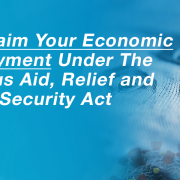

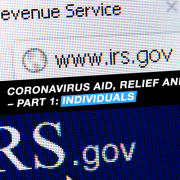
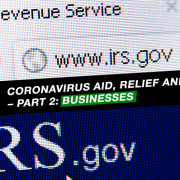
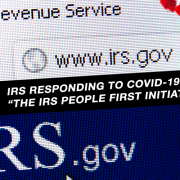

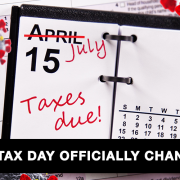
 Follow
Follow Follow
Follow